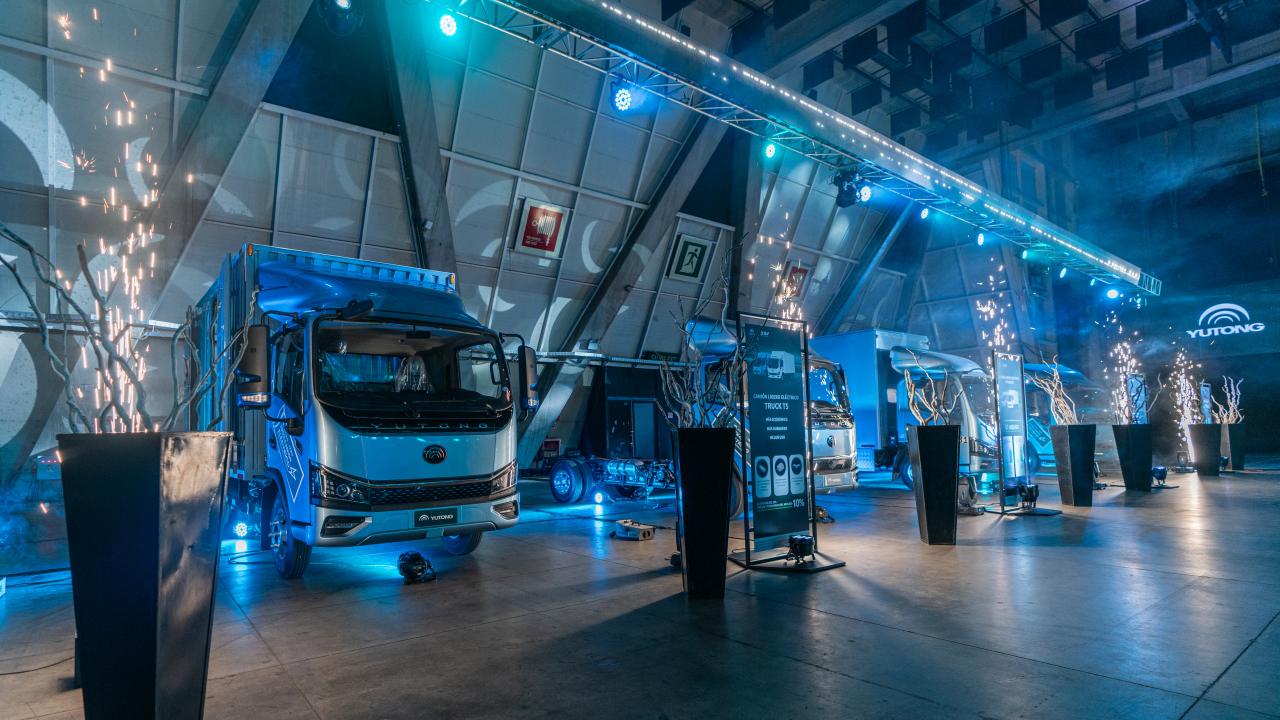
These are models intended for sectors such as urban logistics, construction and also mining. The firm has already produced 17,000 zero-emission trucks with 14 models of different tonnage.
While the Biden administration in the United States fights electric vehicles from China, accusing unfair competition that would come from hidden subsidies from the communist State to its flagship companies, the Chilean industry is looking at options to decarbonize its emissions and achieve the desired sustainability quotas set. by 2050.
Taking advantage of the Chilean drive to electrify mobile sources - the country has a roadmap called "electromobility strategy" that has defined 2035 as the year in which new vehicles cannot be marketed, except if they are zero emissions, and in 2040 all fleet should be renewed - the Chinese firm Yutong, originally from Zhengzhou, in the province of Henan, is betting on placing its electric and hydrogen products in the heavy vehicle sector.
It was in 2015 when the Chinese company produced its first truck. Today it already has 197,000 around the globe, with 14 models of different tonnage for different industries, from mining, logistics and construction.
Not everyone will arrive in Chile in this first stage.
"We have [for the Chilean market] the light truck, the dumper truck (hopper), the tractor truck, the mixer truck and the mining truck. Five models, both electric and hydrogen," says Rubens Puglietti, director and co-founder of the Chilean firm ZEV, official representatives of Yutong electric trucks.
Puglietti indicates that the five-ton electric truck will be sold for approximately 71 million pesos (about US$ 74,000). But he is more cautious when referring to the prices of the other trucks.
In any case, the firm emphasizes that the daily fuel cost of an electric truck is one third that of diesel trucks and 38% less is spent on maintenance issues. Therefore, the bet is that the savings compared to regular vehicles are obtained in the operation.
Regarding the sales projection for 2024, in terms of urban or light trucks, which will be its main focus this year, ZEV's estimate is 60 units
"That is the main goal, but we are still starting to sell the mixer , the dumper , the tractor and the miner," adds Puglietti.
The Chilean firm will also be in charge of managing the truck operation software , and has partnered with different local firms to support the related issues of fleet monitoring with GPS, purchase and installation of chargers, as well as financing for the purchase and a battery swap program to make up for the lack of chargers.
The sales horizon is broad, not only for Yutong, but for any supplier of electric trucks.
For now, in the Chilean truck market, many consider that everything remains to be done.
According to data from the National Automotive Association of Chile (ANAC), only three units were sold in Chile during March, which totals nine machines in all of 2024. In 2023 the cake was made up of twelve buses and in 2022 there were only four.
All this will change very soon: together with the emissions specifications contained in Chilean standards and its electromobility strategy, the total number of units traveling in the country exceeds 160 thousand.
MINING NEED
According to a December 2023 report from analytics firm GlobalData, the inclusion of zero-emission vehicles is the next frontier in mining vehicles, with projects announced from operators such as BHP, Fortescue Metals Group and Teck.
GlobalData's Development of Electric Mining Vehicles in Underground and Surface Mining report notes that some small-scale battery-powered trucks are already deployed and have found particular popularity in China.
The report identified that of the 129 battery-powered trucks tracked worldwide, China had 78, representing 60.5% of the global total. Thailand followed with 25 and Brazil with 13.
Present at the Yutong electric truck event in Chile was a representative of Chilean iron ore miner CAP, which operates in the Atacama region in the north of the country.
In its operations, this mining company has both buses for transporting personnel and Yutong brand electric trucks. These are four units with a load capacity of 55 tons. The company already has 35% renewable energy consumption in all its operations, and seeks to reach 100% by 2026.
The Globaldata report also notes that hydrogen fuel cell battery technology is likely to enter the market soon, but that in terms of trials and pilot tests, it is one or two steps behind lithium battery technology.
READ ALSO: Yutong: "The future is electric"
Chile is currently the country with the largest fleet of electric buses after China. "Today we have 2,500 electric buses and this year 2,000 more will be put out to tender. In this way, in 2025 we will have 65% of the fleet powered by electricity," indicated the regional energy secretary of Santiago, Iván Morán.
Already in 2019, the firm was present in the South American country, launching a fleet of 100 electric units built by the Chinese firm Yutong.
At that time, the firm announced to AméricaEconomía that, along with buses, it would begin the production of trucks.









